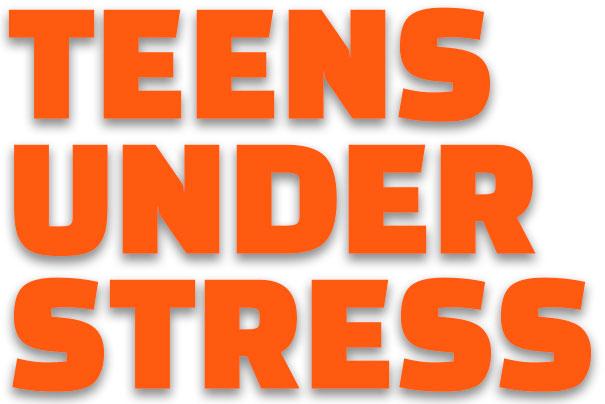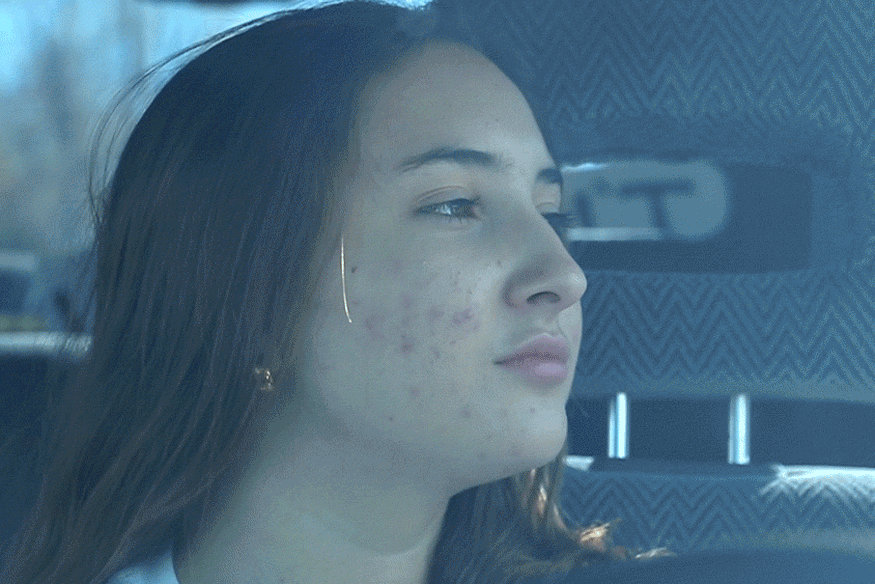
Day 1: First day of senior year jitters
It’s the morning of Amelia’s first day of senior year and she’s already stressed out.
“I didn’t get a good night’s sleep,” she says, her voice restrained in an audio recording she shared with CPR News. “I was really anxious. It might be about school or it might be about something else.”
Still, a few days before school started, the 17-year-old had gone to school early, to help a teacher get the classroom set up. At first she chatted with her friend and the teacher. But then, memories of last year cropped up again.
“I would walk in and my teacher would just give me this look and I was late because I couldn’t drag myself out of bed,” she remembered. “I remember the time that I was having a breakdown. I couldn’t remember anything my teacher was saying. I was just holding my head in my hands.”
Soon, she was worried again, not excited, about the year ahead. She clammed up, retreating into her shell and overthinking how her teacher and friend are reacting.
Amelia attends a high-intensity, high-performing charter school in Denver. Like many students we spoke to for our series Teens Under Stress, the pressure of school weighs heavy on Amelia. Academic stress is cited as the number one stressor in teens’ lives in one recent national survey. Schools like Amelia’s, with their focus on grades, tests and college attendance, may be particularly stressful for kids: One study added youths in high-achieving schools like Amelia’s to their list of “at-risk” youths.
- Technology, the law, college costs and our culture have made academic stress much worse for teens today
- There's no escape from the news. Teens say it's changed the way they think
- What phones do to teen brains (and what teens wanted to know about that)
CPR followed her from the last days of summer break for the first weeks of school, chronicling all the mental health struggles that school stress is causing. She recorded audio diaries and shared them with CPR, accounts of what her day-to-day is like. We’re only using her first name and we aren’t naming her school to protect her privacy.
Here’s what she told us:
Amelia didn’t always feel this way about school. She didn’t used to take it as seriously - she worked hard for those Bs and Cs and felt pretty good about that. She spent time with her friends.
“I am an extrovert,” she says. “I love to be with people. I get my fuel from talking with people, laughing, making others laugh, cracking jokes — that is how I get my fuel.”
In person, she’s outgoing. She drives an old car with a Ruth Bader Ginsburg bumper sticker, talks enthusiastically about how she enjoys a good debate with people of differing opinions and how she loves exploring the city. But she often gets down on herself. She talks about measuring up to friends who, unlike her, come from “two-parent” families” and take vacations in the mountains. In her sophomore year, she transferred from a traditional public school to the charter school she currently attends.
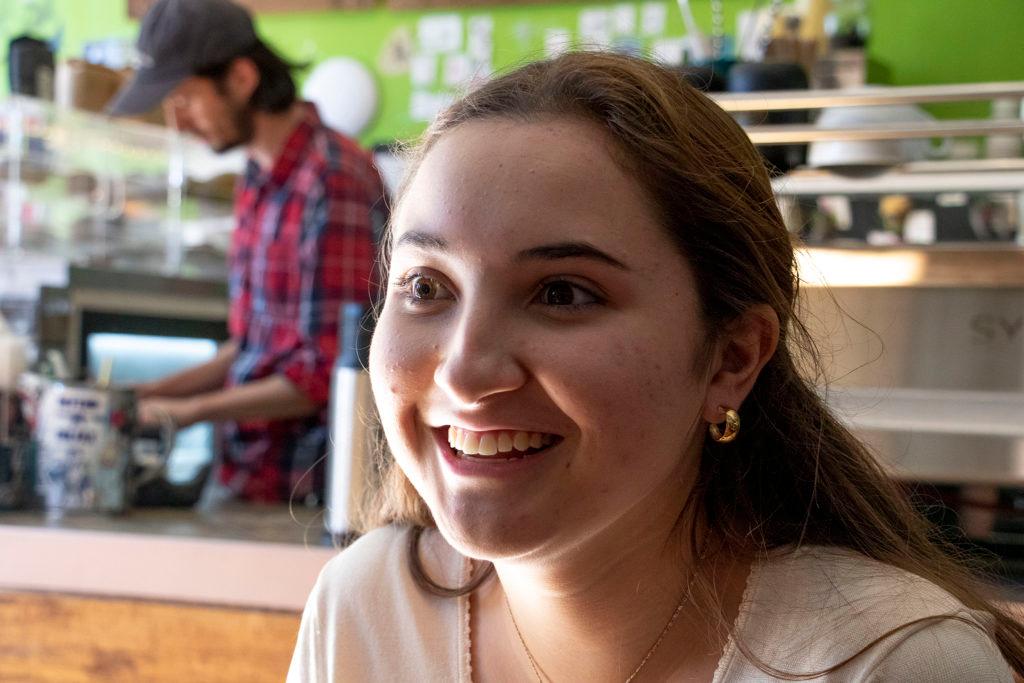
“I was excited for a world where you wanted to learn and you kept trying and that idea is healthy, but that's not what actually went on. Everybody talked about their grades nonstop. There’s this culture that, as soon as there’s a test, it’s like ‘What did you get?’
There's this like competition and it breeds, “I need to be first. I need to be the one that gets accepted to all the Ivys. I need to be the one that has all these extra-curriculars, that plays a sport, that’s involved in something volunteering.” You have a good SAT score, you’re involved in all the APs. I would see some of my friends who were in the APs and stuff and they would just freak out over anything really below like a 90 and I'm like, that is unhealthy and unrealistic and they would stay up all the time. I'm like, ‘You need sleep!’”
Still, in her junior year, she decided to focus even more on school, to raise her grades, and get focused on college.
“I knew it wasn’t healthy but it felt like the only option because it was all around me. Everywhere you go there’s college flags in the hallways and you’re constantly reminded, ‘You have to go there some day.’ It's like Columbia, it's Tufts, it's Howard...It’s all selective stuff you always have to strive for that, you’re always reminded you have to strive for that.
It gets to a point where this is not learning anymore. This is a toxic academic environment where nobody can flourish. And if you are flourishing, I worry about you. And I worry about myself. I worry about the people in my community. Because you need to meet high expectations with high supports.
And when you don’t do, that’s when people start to feel sad, people like me start to lose control of their emotions and they can’t focus in class.”
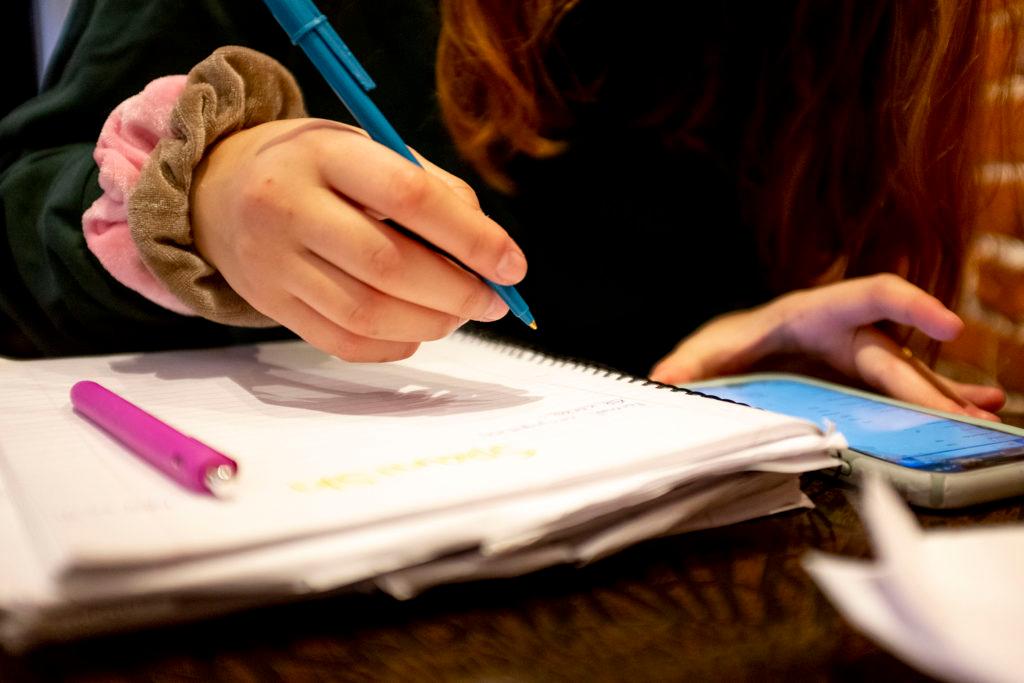
In junior year, she says “old Amelia” started fading away. She withdrew from friends, scared of classmates making her sad, scared of the constant tests, scared of the social anxiety she felt walking into the lunchroom.
She began having what she and one of her friends call “spiral moments.” “When any event happens that makes us feel sad, upset, or brushes up against us the wrong way, we start thinking more and more about it and we just are on a downward spiral until, for me, I start crying,” she says. Amelia’s so stressed in some classes, she thinks that she only absorbs about 60 percent of her classroom work. She feels like she’s often in a fight or flight mode. Once, it got so bad her hands started cramping, her knees shook, her heart raced. She had to leave class.
Now, as she goes into senior year, she feels she has to make up for her past performance. Most days, she studies and does homework at a nearby cafe from 3:30 p.m. until late at night. “I have to submit all A’s first trimester senior year I have to, like I have to,” she says. “I still shame myself for not having above a 4.0.”
If you need help, dial 988 to reach the Suicide and Crisis Lifeline. You can also reach the Colorado Crisis Services hotline at 1-844-493-8255 or text “TALK” to 38255 to speak with a trained counselor or professional. Counselors are also available at walk-in locations or online to chat.
Day 2: We’re already talking about re-taking the SAT.
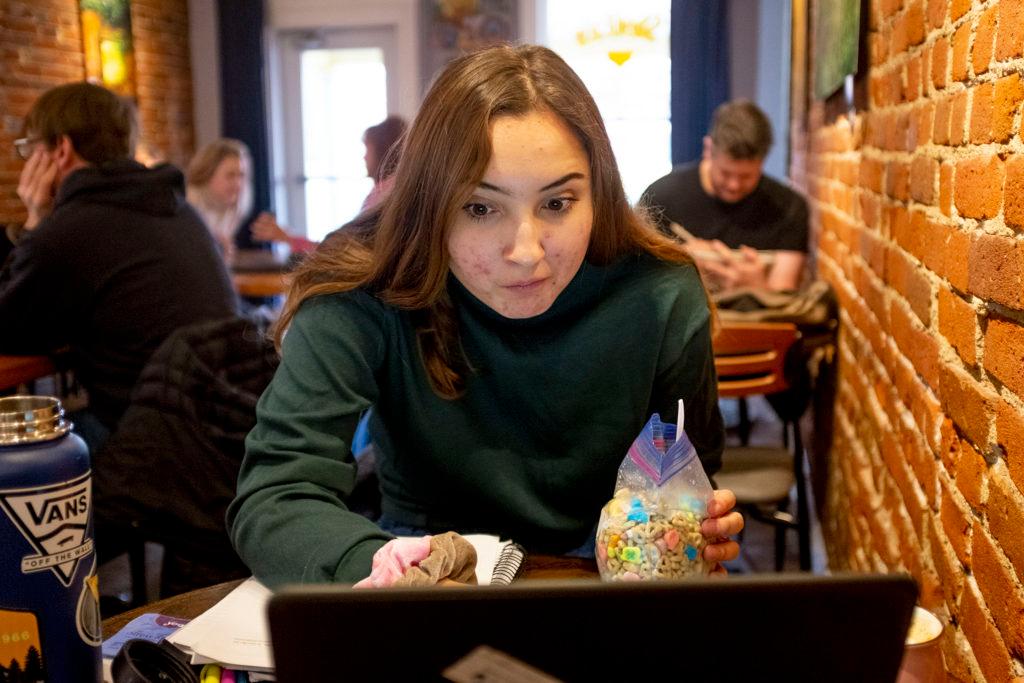
Amelia’s second day of senior year isn’t going much better. At lunch, she tucks herself into a nook in a school hallway, out of the flow of traffic, to get a quiet moment. She needs just a few minutes of alone time each day but there’s really nowhere to do that. She’s not allowed off campus. “I can’t go upstairs to get some space,” she says. “I don’t have a counselor’s office I can go into. It’s just making me feel a little on edge right now....It just kind of makes me feel trapped.”
She takes out her phone and records her already-mounting worries about academic performance:
“I’m a little worried because I don’t have an elective in my schedule. I just have six straight periods of academic work. There’s no moment in my day other than right now when I’m staring at the wall where I can just be like, ‘I’m not stressed about anything academic’.
On day two we had this questionnaire that our college counselors gave to us...it asked us in two to three sentences tell us exactly what you want us to tell college admissions officers about yourself. That makes me very stressed. I couldn’t hand it in on time because I wanted to think about it some more.
Day two we’re already talking about retaking the SAT and the ACT (college entrance exams) and I have to register by the end of the day.
On the second day of school, our teacher showed us that AP Lit is fourth from the bottom on how people do on the test (students take at the end of the year)...Basically she was saying ‘Hey, this is how close you guys all are to failing this test.’ Of course, she reassured us and said: “Don’t worry, everything will be fine.” Everything is not fine. I wasn’t the only one who was stressed out when she pulled out that statistic. The whole class was quote, unquote, f--- myself, ‘I’m gonna die,’ ‘This is going to be stressful.’”
On top of all that stress, Amelia feels like she’s losing herself, and her friends along with it. She retreats to her car and starts to cry.
“I just feel hopeless because I really don’t know how I’m going to survive the year. I feel like they don’t like the new me anymore because I don’t make jokes the same way, because I bury my head in my arm in class, because I hide behind my hair, because I curl up in a ball whenever I get nervous about something and I don’t talk as much anymore. I feel like they don’t like who I am anymore and really I don’t either...This is not who I am, I’m not this overly stressed person who can’t function normally, I am not this scared, anxious, sad person...It’s not who I am. It’s not who I am.”
Here's Amelia, in her own voice. pic.twitter.com/Euym4kyItj
— CPR News (@CPRNews) December 3, 2019
Day 6: The teenaged-life crisis
Amelia sits by a stream in Golden. She went to her senior sunrise, a high school tradition to watch the sunrise. She wasn’t going to go. But she’s glad she went. In a recording, she talks about seeing a friend who goes to school in Golden and visiting her school.
“It was really refreshing one, to get out of the city and two, it was really refreshing being at a different school. As soon as I walked in I was like, there’s art on the walls, there’s nice comforting banners, there’s a park nearby and you’re allowed to go to it. There was a lot of nice, free-flowing energy. There wasn’t a student type that you had to be. There wasn’t all these college banners making you feel strangled.”
On this tape, Amelia’s voice is different, more energetic.
“The past two days have been abnormally good and I think it was because I’m taking my Adderall...for the ADD the doctors think I have. I know for a fact it releases increased levels of dopamine and taking my meds, it brought me to kind of this mediocre like, ‘OK I’m content and I’m not having any of my spiral moments, but I’m also not feeling great either.’
Today I didn’t take my Adderall because I didn’t have school. It makes me a little scared because I don’t want to depend on my Adderall medication to just feel barely OK. That makes me scared because people can get addicted to it for various reasons. When I’m in school and I take it I’m very focused. I don’t talk to the people next to me, I don’t doodle. At lunch, I’m like ‘homework, homework, homework.’”
She muses that before her “teenaged-life crisis,” she’d crack a joke, or sing a song, or make people laugh.
“I’m really not doing that anymore and I don’t know why!” she says. “I really like sophomore Amelia, she was a gem! I miss her! I want her back.”
Day 16: Fighting for Old Amelia

Amelia often drives a half an hour or more outside the city, just so she can finally relax. Sometimes by a river. Next to some trees. Or, like today, here in a field. “I can see the skyscrapers out in the distance,” she says. She points out a butterfly flitting by. This is her place to just a “normal teenager,” she says.
She starts to recall a pair of incidents at school that changed her, which made her start to push back on an academic system that puts students under so much pressure. Yes, her school has some great teachers. Yes, she says the quality of the education can be fabulous. Yes, some students can handle sky-high stress. But for others, it comes at a price, especially when they feel there’s no one to talk to at school or home, like one friend who was in distress.
“I remember exactly where we were when I was like ‘Can’t you talk to your mom about it, she said no.’ Grandma? She said no. I was like ‘Who you are going to talk to? I remember her saying, I don’t have anybody to talk to....I was like (she snaps her fingers) that is not OK!”
She remembers another time, she got a hall pass to take a break from class and came upon her friend.
“She was crying. She lifts up her sleeve and right where her elbow is right on her arteries, deeper than anything I've ever seen before, these cuts. And they weren't just normal cuts…I was like, ‘I can't cry right now because that would make her feel worse.’ But I think that is what was the catalyst for me working on this.”
“And I gave her a hug. And then one of our science teachers was like, ‘Where are you supposed to be?’ And I just looked at her like, ‘Do you have any idea what is going on?’ And she says, ‘Where's your pass?’ I said, ‘Right here!’ She assumed that we were just out of class to have fun. We all had passes so we were all good on the safety side. But she took away the one space that my friend had to talk to somebody. And I'll never forget that.”
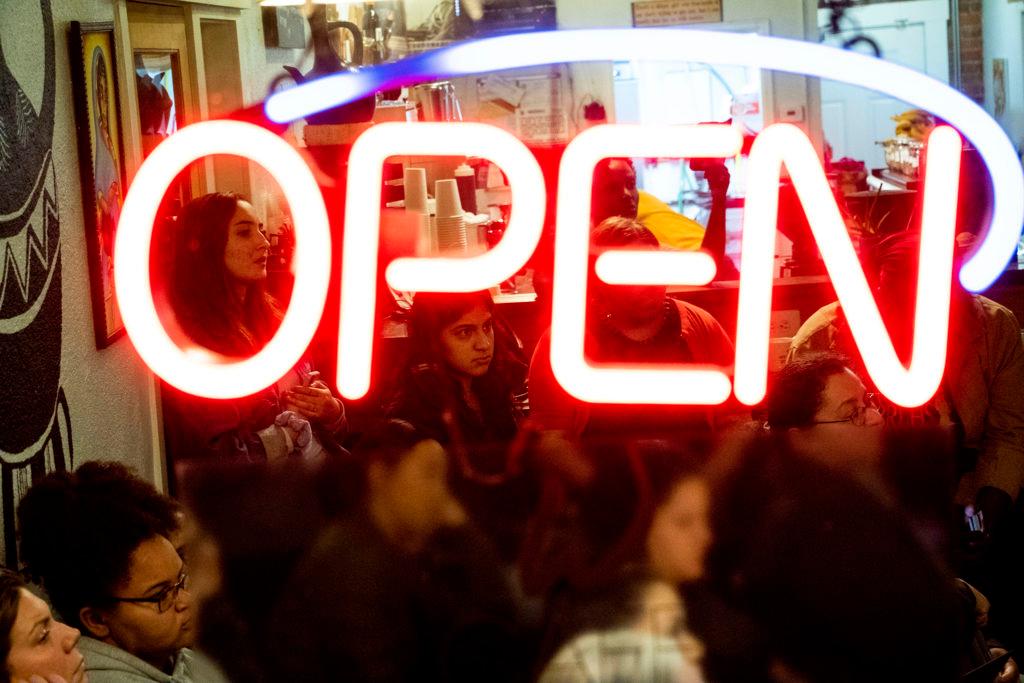
She says those memories have stuck with her because they’re not about school, they’re not about college attendance, they’re not about grades.
“I say this because when you are hyper-focused on 100 percent college acceptance...and I'm not saying it's a bad thing...but you kind of just like only look at that one thing and everything else to the sides... There could be a fire on your right. There could be a tornado on your left, but you are focused on that a hundred percent college acceptance and nothing will get in the way of that even if it means students are dying, even if it means students are self-harming, even if it means students come to school, stressed, anxious, depressed, mad, angry, upset, in the fight or flight mode, you will not get to see any that because you are, you have your blindfolds off to everything else. Everything else. You are only focused on that one thing.”
When Amelia started at her current school, she was shocked to find her school has a mental health specialist, a psychologist, only one day a week. The social workers are often busy, and Amelia feels there aren’t the mental health support the school needs, given how much pressure students are under. So she’s decided to make it her mission to change that, to fight for more support. She has testified before the Denver Public School Board, and asked the school to fund more mental health positions.
“Principal, dean, prep academy dean, senior academy dean – we laid out and made room in the budget for that,” she says. “So why don’t we make room for mental health?”
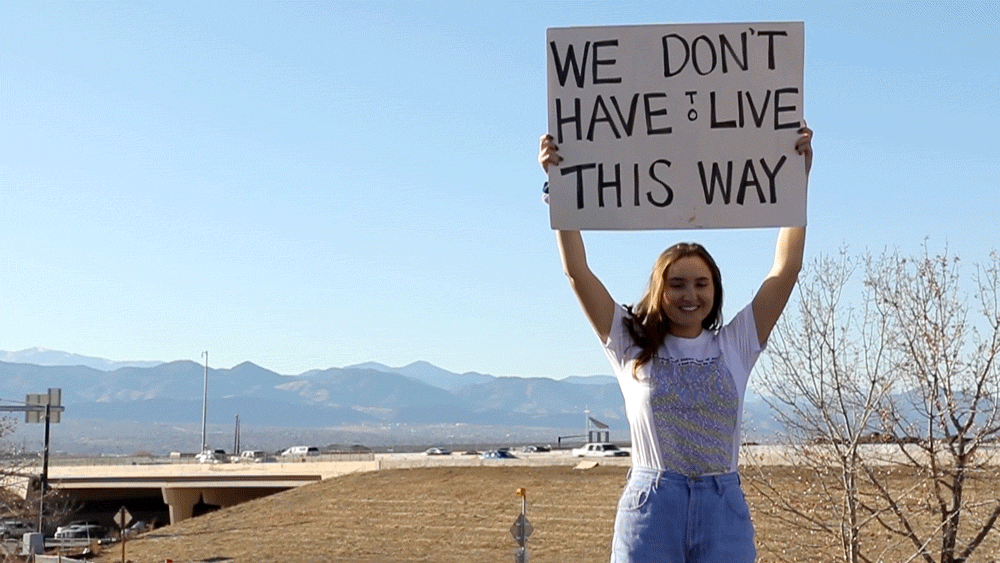
She wants school officials to take off their “blindfolds” and pay attention to the pressure students are under.
“Realize what is happening to the students in your district, to the students, in your schools, to the students in your classrooms. Realize what is behind that fake smile. Realize what is behind their poor attendance. Realize what is behind their poor grades. Realize what is behind their bad behavior. Realize what is behind them never being in class. Realize what it is, before it is too late.”
Editor's Note: Due to an editing error, this story incorrectly described the number of social workers at Amelia's school.
We want to know more, and we hope you do, too.
CPR News will spend the next few months investigating the factors that have created the ultimate pressure cooker for some teens. We’ll go into their world through audio diaries, interviews, reflection and analysis. Most importantly, we’ll examine what teens, families and schools can do to let some of the pressure loose.
_

